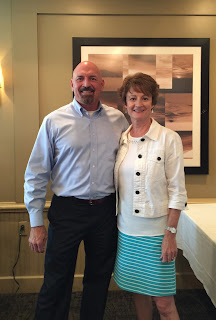I recently came across this article by Blanton Phillips of Phillips Staffing and thought it worth repeating (reblogging?):
Recently, several economists have weighed in on South Carolina's improving employment picture, and in particular the contributions — or perceived drawbacks — of the growth in temporary and contract staffing in the Palmetto State. While we are encouraged to see recognition of an industry that provides quality jobs to tens of thousands of South Carolinians every week, some of the coverage missed important points, painting only a partial picture of the staffing industry's impact.
Thousands of businesses across South Carolina use temporary staffing partners, including such acclaimed employers as BMW and Caterpillar, plus many small and mid-sized businesses. Nationally, more than 3 million Americans enjoy quality careers with competitive wages through the staffing industry, according to research organization Ibisworld. In South Carolina, the industry connects local people to businesses seeking qualified talent.
Recent reporting has asserted that businesses often use staffing services to evade certain HR regulations. As one of the Southeast's leading staffing firms, we strongly disagree with this. We know of no such arrangements, and would vigorously advise clients against any practice that could compromise compliance with ERISA or other employment law.
In fact, quite the opposite is true. Staffing is a core business strategy deployed by many top employers — including nearly 95 percent of the Fortune 500 — to improve ability to hire the right people, and to invest more capital, all while connecting people to good jobs.
Today's staffing industry maintains a thorough understanding of employment-related legal and regulatory issues. It offers expertise in issues related to pay, benefits, state and federal taxation, and other HR requirements, and often functions as a client's HR department. Our organization has gone to great lengths to ensure complete compliance with the Affordable Care Act's Employer Mandate, proudly offering fully compliant healthcare coverage to all eligible employees.
Staffing assignments are quality jobs. Each year, tens of thousands of South Carolinians transition into long-term employment as a result of companies like ours matching workers to positions based on skills, experience, company culture and fit. The opportunity for a "trial period" in a job is beneficial to both employer and employee — significantly reducing expensive and disruptive turnover.
In a broader context, our industry is working closely with the state of South Carolina to help fill the skills gap. Our firm utilizes WorkKeys and the National Career Readiness programs extensively with our clients and employees, and we are a proud partner in the WorkReady Communities effort.
We also are working with state officials to include staffing jobs in strategic initiatives aimed at growing the workforce, including tax credits for new jobs and expanding employment, as is accepted in most of our neighboring states. With temporary staffing as a core strategy to build and maintain workforce, the industry continues to be embraced for its contributions to job creation, growth, and sustained employment.
Staffing also is a critical part of the economic development process. Many companies are drawn to our region because of the deep and growing availability of flexible, talented, and efficient labor. Those organizations depend on our industry's expertise and services to find, hire, and deploy the people that they need to be successful.
Just as importantly, our employees rely on us to place them in good jobs, where they can utilize the skills they have, learn new skills, build experience, and enhance their career.
For all these reasons, temporary staffing is one of South Carolina's greatest economic drivers — and greatest assets.



